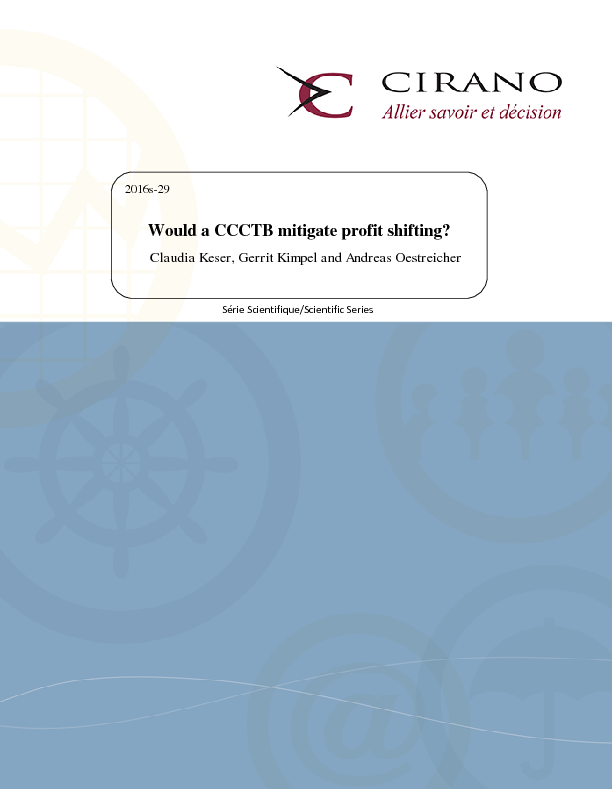Would a CCCTB mitigate profit shifting?
In this paper we look into the probability that, given the choice, corporate groups would opt for taxation on a consolidated basis. We further consider what effects separate accounting and taxation on a consolidated basis (formula apportionment) might have on the location of investments and exploitation of remaining leeway for profit shifting. To this end, we present an experimental framework that captures the most relevant aspects of theses decision for EU multinationals.
In a controlled laboratory experiment we use a basic 2-by-2 treatment design with two levels of tax-rate differential between two investment locations and two different remuneration functions allowing the participants to act as owners or managers of a company. In addition, we control for the way in which information on possible extra costs associated with profit shifting is presented to participants.
Our results show that taxation using formula apportionment, while being a viable alternative, does not emerge as the preferred regime. In both separate accounting and formula apportionment, the allocation of production factors depends on the tax-rate differential. Higher tax rates lead to lower amounts of investment, in particular if formula apportionment (CCCTB) is used. Moreover, profit shifts to companies not eligible for consolidation (i.e., companies not resident in the EU) are significantly higher under formula apportionment than under separate accounting. We do not observe significant differences in the behavior of managers and owners. However, the form in which information is provided on possible extra costs has an impact on the extent of profits shifted to low tax countries.




